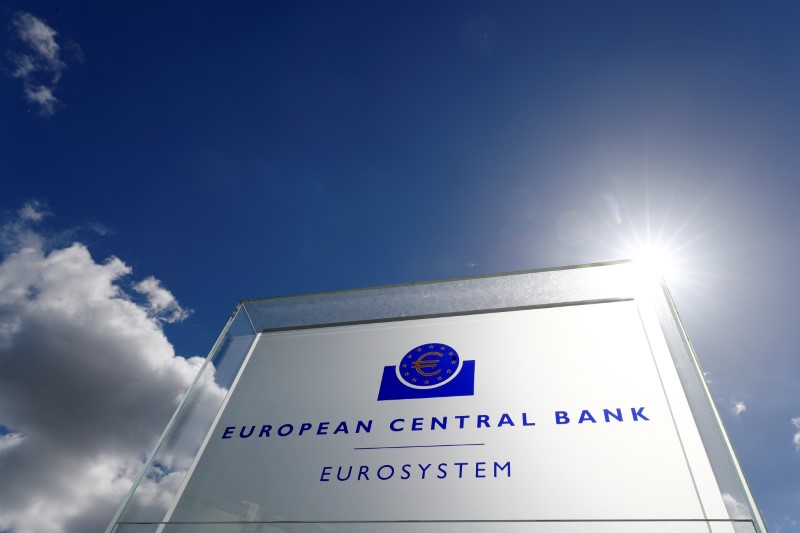 © Reuters. The logo of the European Central Bank (ECB) is pictured outside its headquarters in Frankfurt
© Reuters. The logo of the European Central Bank (ECB) is pictured outside its headquarters in FrankfurtFRANKFURT (Reuters) – Euro zone banks will repay 11.00 billion euros of ultra cheap funding to the European Central Bank, returning only a fraction of their borrowings two years ahead of schedule, the ECB said on Friday.
Banks borrowed 399 billion euros ($465 billion) in a four-year targeted longer-term refinancing operation (TLTRO) in mid-2016, piling into a facility that promised to pay them a small amount of interest if they met their quota of loaning to the real economy.
The facility, part of the ECB’s stimulus package launched to fight off the threat of deflation and to boost growth, is remunerated at the bank’s deposit rate, ensuring a rebate since the rate is now minus 0.4 percent.
For graphic on funds in the ECB’s targeted longer-term refinancing operations click https://reut.rs/2tkkZ60
Banks borrowed a combined 739 billion euros in four tenders in the ECB’s second TLTRO facility and they have the option to make an early payment halfway through each four-year operation.
However, analysts estimate that Spanish and Italian banks took up more than half of the original facility, suggesting little appetite to make an early repayment as the ECB cash is still the cheapest source of funding for them.
Borrowing costs in the euro zone have declined sharply in recent years, indicating that these rock bottom funding costs are making their way to firms.
Indeed, the availability of funding is not generally seen as an issue for banks and the real difficulty is finding firms with viable business plans in need of loans, the ECB’s lending survey showed.
For graphic on development of corporate borrowing rates in key euro zone countries
click https://reut.rs/2MOQMUP
Fusion Media or anyone involved with Fusion Media will not accept any liability for loss or damage as a result of reliance on the information including data, quotes, charts and buy/sell signals contained within this website. Please be fully informed regarding the risks and costs associated with trading the financial markets, it is one of the riskiest investment forms possible.
Source: Investing.com





























